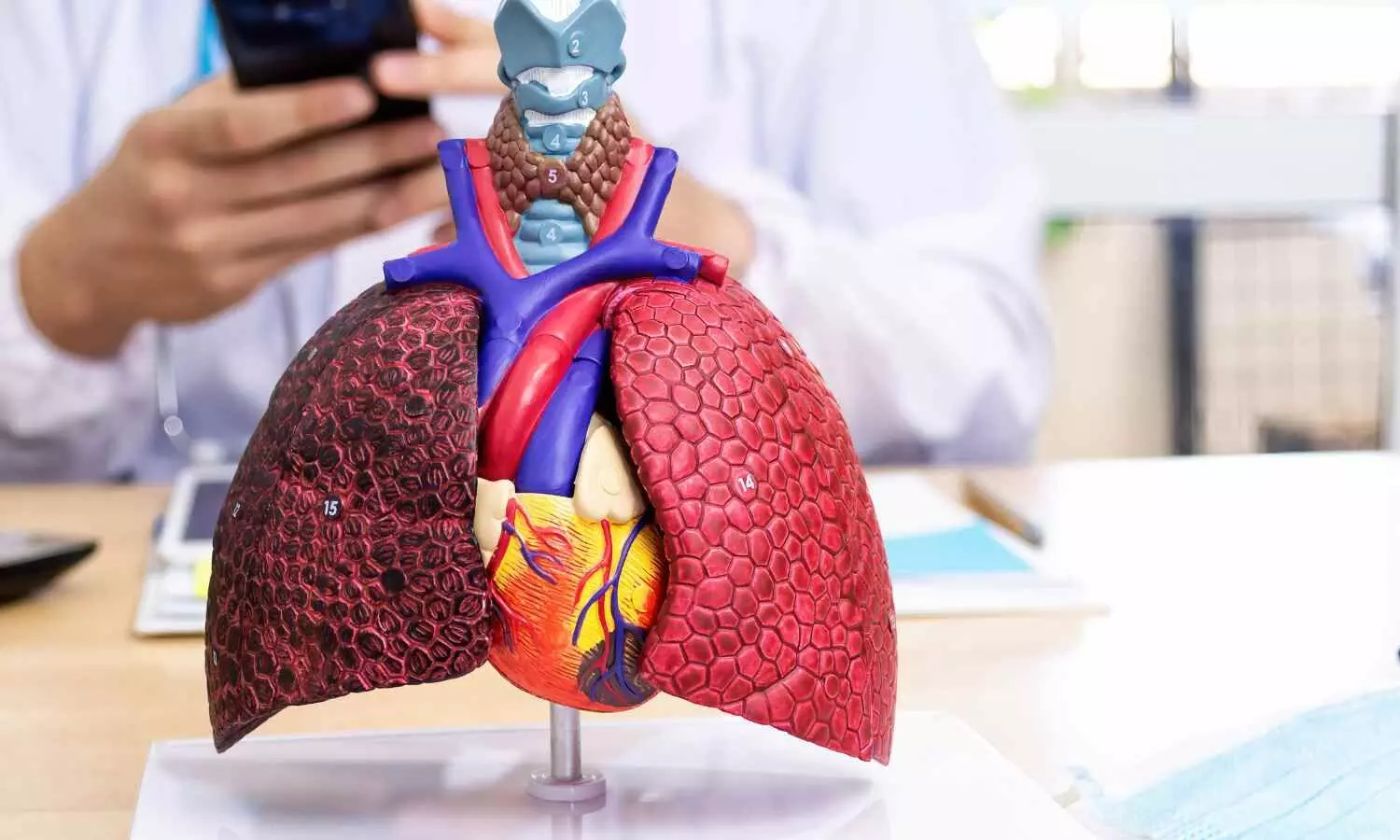HF therapy guided by wearable devices effective in reducing mortality: Study
- byDoctor News Daily Team
- 30 September, 2025
- 0 Comments
- 0 Mins

A new study published in theFrontiers in Cardiovascular Medicineshowed that wearable technology for monitoring pulmonary congestion in heart failure (HF) patients decreased the risk of both hospitalization and mortality by 37%. Hospitalizations for HF have a considerable predictive impact. They are expensive, intrusive, and have no discernible mortality benefit, yet, implanted hemodynamic monitors can identify early congestion. Although it may not be a reliable indicator of decompensation, body weight is frequently tracked as an outpatient for the onset of congestion. An alternative to intrusive methods of monitoring traffic is provided by wearable technology. Therefore, in comparison to conventional therapy, this meta-analysis was carried out to investigate the effectiveness of wearable devices in lowering HF hospitalizations and death. PRISMA criteria were followed in conducting a systematic review and meta-analysis. Trials comparing wearable device-guided care with conventional HF therapy were found by searching the PubMed, MEDLINE, EMBASE, and Cochrane databases. Hospitalization for heart failure, worsening heart failure events (hospitalization or ED visit for heart failure), and all-cause death were among the outcomes. Random effect models were used to do meta-analyses of total (first and recurring) events. All the 958 individuals who were enrolled at the time of or within 10 days after being discharged from a hospitalization for heart failure were included in 4 trials that satisfied the inclusion criteria. When compared to standard treatment, wearable device-guided therapy led to a 40% decrease in HF occurrences (RR: 0.60, 95% CI: 0.42–0.86, p = 0.005) and a 41% decrease in hospitalizations for HF (RR: 0.59, 95% CI: 0.41–0.87, p = 0.007). The wearable monitoring arm saw a 26% decrease in all-cause mortality (RR: 0.74, 95% CI: 0.55–0.99, p = 0.04). Wearable monitoring resulted in a 37% reduction in the composite outcome of HF hospitalization and death (RR: 0.63, 95% CI: 0.44–0.91, p = 0.04). All-cause mortality and HF hospitalizations were decreased in newly admitted patients when treatment for HF was directed by wearable technology that measures pulmonary congestion. Overall, across the range of EF, HF therapy guided by wearable devices that identify pulmonary congestion decreased HF hospitalizations and mortality. When transferring treatment from the acute to the home environment, wearable monitoring may offer more protection against unfavorable outcomes. This approach proved successful in patients with characteristics indicating a worse prognosis, such as a recent hospitalization. Murray, C. P., Kenny, A. P., O’Sullivan, N. J., Murphy, R. T., & Curtain, J. P. (2025). Efficacy of wearable devices detecting pulmonary congestion in heart failure: a systematic review and meta-analysis. Frontiers in Cardiovascular Medicine, 12, 1612545.https://doi.org/10.3389/fcvm.2025.1612545
Disclaimer: This website is designed for healthcare professionals and serves solely for informational purposes.
The content provided should not be interpreted as medical advice, diagnosis, treatment recommendations, prescriptions, or endorsements of specific medical practices. It is not a replacement for professional medical consultation or the expertise of a licensed healthcare provider.
Given the ever-evolving nature of medical science, we strive to keep our information accurate and up to date. However, we do not guarantee the completeness or accuracy of the content.
If you come across any inconsistencies, please reach out to us at
admin@doctornewsdaily.com.
We do not support or endorse medical opinions, treatments, or recommendations that contradict the advice of qualified healthcare professionals.
By using this website, you agree to our
Terms of Use,
Privacy Policy, and
Advertisement Policy.
For further details, please review our
Full Disclaimer.
Recent News
Merck Keytruda wins European Commission nod for lo...
- 30 October, 2025
UP NEET 2025 round 3 allotment results postponed
- 30 October, 2025
Achin Gupta to succeed Umang Vohra as Cipla MD, GC...
- 30 October, 2025
Mumbai shocker: KEM Hospital doctor stabbed by col...
- 30 October, 2025
Daily Newsletter
Get all the top stories from Blogs to keep track.


0 Comments
Post a comment
No comments yet. Be the first to comment!